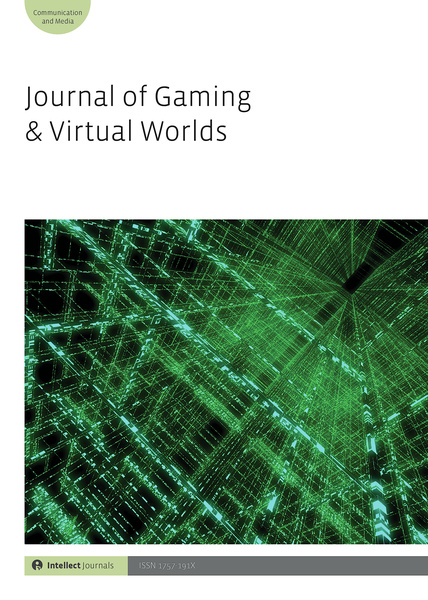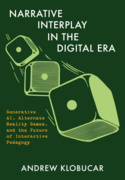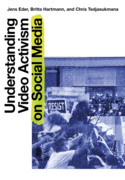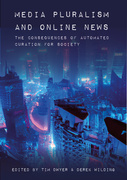General Call for Papers information
JGVW is not currently accepting open submissions. We are currently only accepting submissions for our forthcoming Special Issues 'Consensual Play' and 'Time, Play and Games'.
All articles submitted should be original work and must not be under consideration by other publications.
The Journal of Gaming & Virtual Worlds (JGVW) is a peer-reviewed international journal that focuses on theoretical and applied, empirical, critical, rhetorical, creative, economic, pedagogical and professional approaches to the study of electronic games across platforms and genres, as well as ludic and serious online environments such as massively multiplayer online role-playing games and Second Life™.
JGVW aims at researchers and professionals working in and researching creative media, and seeks to document, harmonize, juxtapose and critically evaluate the diverse media landscape. It features long articles, short papers, essays, interviews and critical reviews of relevant new publications, video games, virtual environments and digital art.
Prospective guest editors are invited to approach the Associate Editors with a proposal for a themed issue or series. Prospective reviewers and publishers should approach the Reviews Editor or the VR & Arts Reviews Editor respectively.
Contributions are invited from all fields of game studies research, design and development. We seek to provide a platform for vivid information interchange between academia and industry, between scholarship and professionalism, between theory, criticism and practice. Typical subject areas include:
-
Theory & criticism: Theoretical inquiries of games, virtual worlds and ludic systems, including but not limited to: aesthetics and philosophies of games, post-humanism, diversity and representation, queer and gender studies, history (of and in games), games and politics, rhetorical approaches, discourse analysis and semiotics, genre criticism and new literacy studies.
-
Design & materiality: Approaches to the practice of game design in digital and analogue domains, including but not limited to: design studies, critical code studies, platform studies and media archaeology.
-
Performance & play: Approaches exploring performative and critical dimensions of play as well as the impact of new technologies on players and player culture. Consideration of games as affective experiences, material assemblages, relational networks and social practices.
-
Space & environment: Approaches considering the creation, occupation and use of ludic spaces in digital and analogue domains, including but not limited to: eco-humanities and space studies, post-colonialism, ambient gaming and augmented/mixed/virtual realities.
-
Education & pedagogy: Perspectives on the role of game studies and game design in (higher) education.
Submissions to JGVW should be made via the 'Submit' button on this page. The attached article should be anonymized, and contain an abstract and up to eight keywords. You should delete the 'file properties' or 'summary info' of your document (see file menu) that reveal your name and institution.
Deadlines:
Submissions are welcome at any time, but deadlines for forthcoming issues are normally as follows:
- Issue 1 (spring): 31 August for long papers; 15 September for short papers
- Issue 2 (summer): 31 December for long papers; 15 January
- Issue 3 (winter): 30 April for long papers; 15 May for short papers
The Journal of Gaming and Virtual Worlds publishes general and themed issues. Themes for future issues are announced in the journal.
Special Issue Call for Papers
Special Issue: ‘Time, Play and Games’
Guest Edited by Federico Alvarez Igarzábal and Chris Hanson (jgvwtime@gmail.com)
Deadline for Submissions: 15 May 2024
Time is a fundamental aspect of our lived experience. Everything we do is to some extent informed by past experiences, guided by our present state of mind, and geared towards achieving a particular state of affairs in the future – however close or far ahead it may be. If we enjoy a certain situation, time seems to accelerate. The opposite is true of boring moments, which seem to last longer than the clock indicates. And we structure our lives by segmenting the continuous flow of time in units of different magnitudes (hours, days, months), of which we keep track with technologies like watches and calendars.
All of this is true as well of play and games. Without time, there is no play. Yet time in video games can behave differently to real, physical time. We can fast-forward it, pause it and reset it to undo the consequences of bad decisions with a few button presses. Time in games can be discrete (turn-based) instead of continuous, and events in their narratives often wait for the players to arrive to a certain point in space to occur. Game temporality is also not homogeneous and may be experienced differently by individual players, or even by the same player in disparate circumstances. Our encounters with games are always informed by our previous experiences with other games and modes of play. Our memories shape our present moment, helping to guide our play experience from developing successful strategies to shaping our expectations for particular game genres. We also must make time to play, carving out temporal windows in our daily lives to engage with games, be they persistent online worlds, games which reward daily gameplay, and idle or casual games, among others. Linear media present their own temporal particularities, like sudden jumps in time. But they have arguably also been increasingly influenced by the temporality of video games, with recent years seeing more frequent releases of films and series with Groundhog-Day-like time loops, temporal reversals, time travel, circular narratives and branching timelines such as multiverses remediating game temporality into other forms.
We invite scholars to contribute papers to a Special Issue of the Journal of Gaming & Virtual Worlds on the theme of ‘Time, Play and Games’. We welcome essays on wide range of approaches to the consideration of time in both digital and analogue games, including but not limited to:
- Time loops, repetition and circular structures
- Multiverse, timelines and time travel
- Gender and time
- Time as tripartite structure: past, present, future
- Memory and genre (e.g. generic expectations for an FPS)
- Queer temporalities
- Remediation and cross-pollination between films/television, comic books and other forms
- Differing time windows in games including present-based play vs. future-oriented strategies
- Disability and time
- Differing modes of time perception
- Tabletop/analogue RPGs long-running campaigns
- Legacy board games and games changing over time
- ‘Seasons’ and refreshed content in AAA titles
- Spatiotemporality and relationships between space and time
- Representations of the past in ‘historical’ games such as Total War: Rome
- Interacting with history for educational purposes such as in Assassin Creed’s ‘Discovery Tour’ mode
- Ruins in games and implied histories as part of world-building
- Timelines in game franchises (e.g. The Legend of Zelda)
- Time manipulation in games such as slow motion, reversing, fast forwarding (e.g. SimCity)
- Time compression and dilation
- Present tense of interaction vs. past tense of narration
- Game preservation and the archive
- Esports and livestreaming
- Slow play
- Speedrunning
- Work time vs. play time.
Proposals should include a 300–500 word abstract and a title and be sent to jgvwtime@gmail.com by 15 May 2024. Accepted submissions will be asked to submit full 5000–6000 word articles by 15 September 2024. No payment from the authors will be required.
Special Issue: ‘Consensual Play’
Deadline: 30 April 2024 for long articles; 15 May 2024 for short articles
Wordcount: 5,000–8,000 words for long articles; 3,000–5,000 words for short articles
Contact: Kathleen Morrissey, kmorrissey1@wpi.edu
The Journal of Gaming & Virtual Worlds invites submissions for a guest edited special issue exploring consent in games. The issues surrounding consent are far-reaching, and what constitutes consent continues to be a live subject of debate in wide-ranging arenas (including healthcare choices, data access, gun ownership rights and sexual assault). As discussions around consent and entitlement swirl around the public sphere, game scholars and designers have a critical opportunity to explore this crucial cultural conversation through the lens of games.
Games have long offered a distinctive exploration of consent through the concept of the magic circle, which involves voluntarily suspending real-world constraints within the playspace (Huizinga 1938, Salen and Zimmerman 2004; Zimmerman 2012). While the magic circle itself does not explicitly relate to consent, the player’s agreement to abide by the rules of the game world can be seen as a kind of implied consent within the context of the game. Thus, when players are forced to endure unwanted game elements, it can feel like a breach of consent. And yet this imposition of undesirable game aspects can be a way for designers to challenge societal norms by pushing the boundaries of player experience. What may initially feel uncomfortable to the player can become an opportunity to unpack why certain realities are uncomfortable to play in. This perspective recently received attention at the 2023 Queerness and Games Jam, where scholars like Sharang Biswas advocated for the queer design value of non-consensual design. This work is tangent to discussions of abusive game design (Sicart and Wilson 2010) and works of game designers like Bennett Foddy, whose games sadistically enjoy punishing players with punitive mechanics.
Games can also be a place for players to take ownership of their experience by negotiating their desires in self-imposed rituals (Baker 2021). To play is to participate in a symbolic world, and when a player adds their own rituals within the game space to enhance their engagement, they are actively consenting to play on a symbolic level. Personalized rituals can allow players to ‘queer’ a game so as to represent the player’s identity and deeply engage in a gamespace which may not inherently include them (Iqbal 2023). Mattie Brice and Emma Vossen have explicated the connection between sex play and ritual, observing how BDSM requires ongoing consensual play within a structure of events: participants communicate boundaries and desires, act out a scene and close with the act of aftercare.
To advance the exploration of consent within games, this special issue invites contributions that examine how games depict, navigate, establish and, at times, infringe upon consent. We encourage submissions that offer new insights into the relationships between players, gaming environments, and designers within the context of consensual play. Critical/cultural approaches are encouraged. Activist work that advocates for consensual games is also welcome. Contributors are encouraged to consider a wide range of subjects for their submissions. These topics may encompass, but are not limited to:
- game narratives that do or don’t ask for/respect player consent;
- queer magic and ritual;
- consent mechanics;
- consent in online and multiplayer gaming;
- ethical considerations of consent within the game development process;
- activist work promoting consent in fandoms and gamer communities;
- sex work and games.
Submissions:
To submit an article, please follow the 'Submit' button on the left of the journal’s webpage. Please write to Guest Editor Kathleen Morrissey with any questions (kmorrissey1@wpi.edu).














